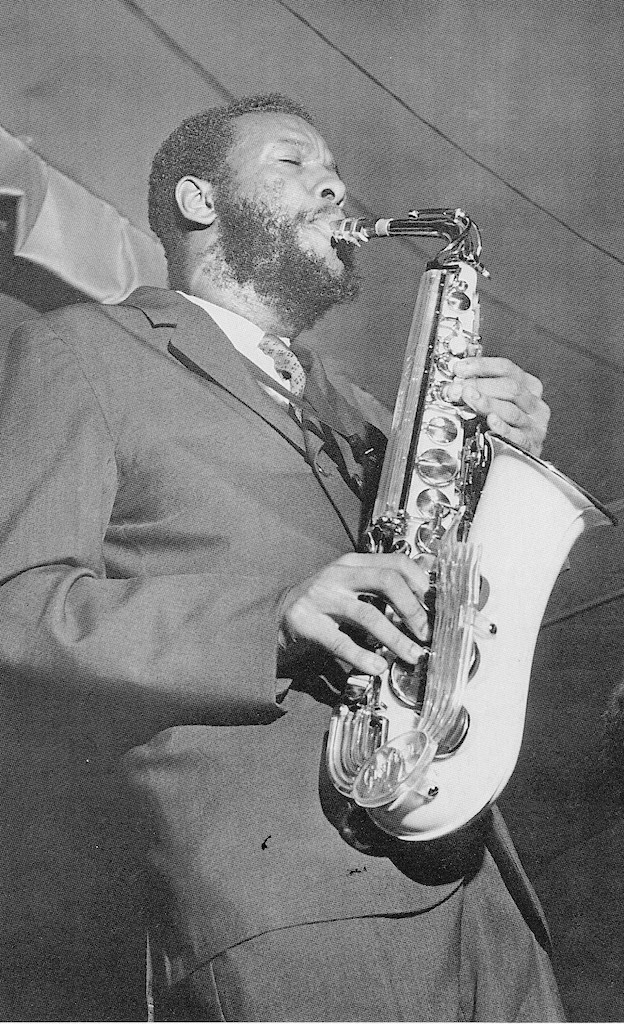For me, one result of Robert Paterson’s recent concert series has been something approaching disillusionment with records, for to one turned on to the music of Ornette Coleman on LP over the last couple of years, his in person blowing at Victoria almost amounted to a physical shock, not only in solo but also in the theme statements, most notably Song For Che; here his crying tone was deeply moving during what turned out to be the most intense performance of the evening.
This number, from Charlie Haden’s Liberation Music Orchestra album, received an emotional interpretation from all four musicians, with a long and dramatic bass solo from the composer. A week later they played it again at a festival near Lisbon, and Haden dedicated the song to the black liberation movements of Mozambique, Angola and Guinea; as a result he was arrested by the Portuguese political police and interrogated for four hours before being freed by the intervention of the cultural attaché of the U.S. Embassy.
At Victoria, Dewey Redman was excellent, and displayed not only the same kind of finely judged vocalised effect that he employs on Ornette’s ‘Love Call’ LP, but also a big straight-ahead tenor sound which fitted in beautifully with Coleman’s contrasting tone.
The swing generated by Haden and drummer Ed Blackwell, coming on in places like a couple of old-time rockers, was at times phenomenal; Blackwell played the tightest, crispest four-four you ever heard, and backed the other soloists with sympathy and wit. All stretched out on Lonely Woman, featuring an uptempo solo by the leader, completely different from the classic Atlantic recording.
We tend to take the processes of improvisation too much for granted, for it isn’t exactly child’s play for a musician to be able to come up with a meaningful solo even on a good old harmonically conventional twelve bar blues; to go right out on a limb and pour out a torrent of melodic ideas, while occasionally wrenching hearts along the way, as Ornette Coleman does consistently, is a feat within the grasp of only the greatest jazz musicians.
















